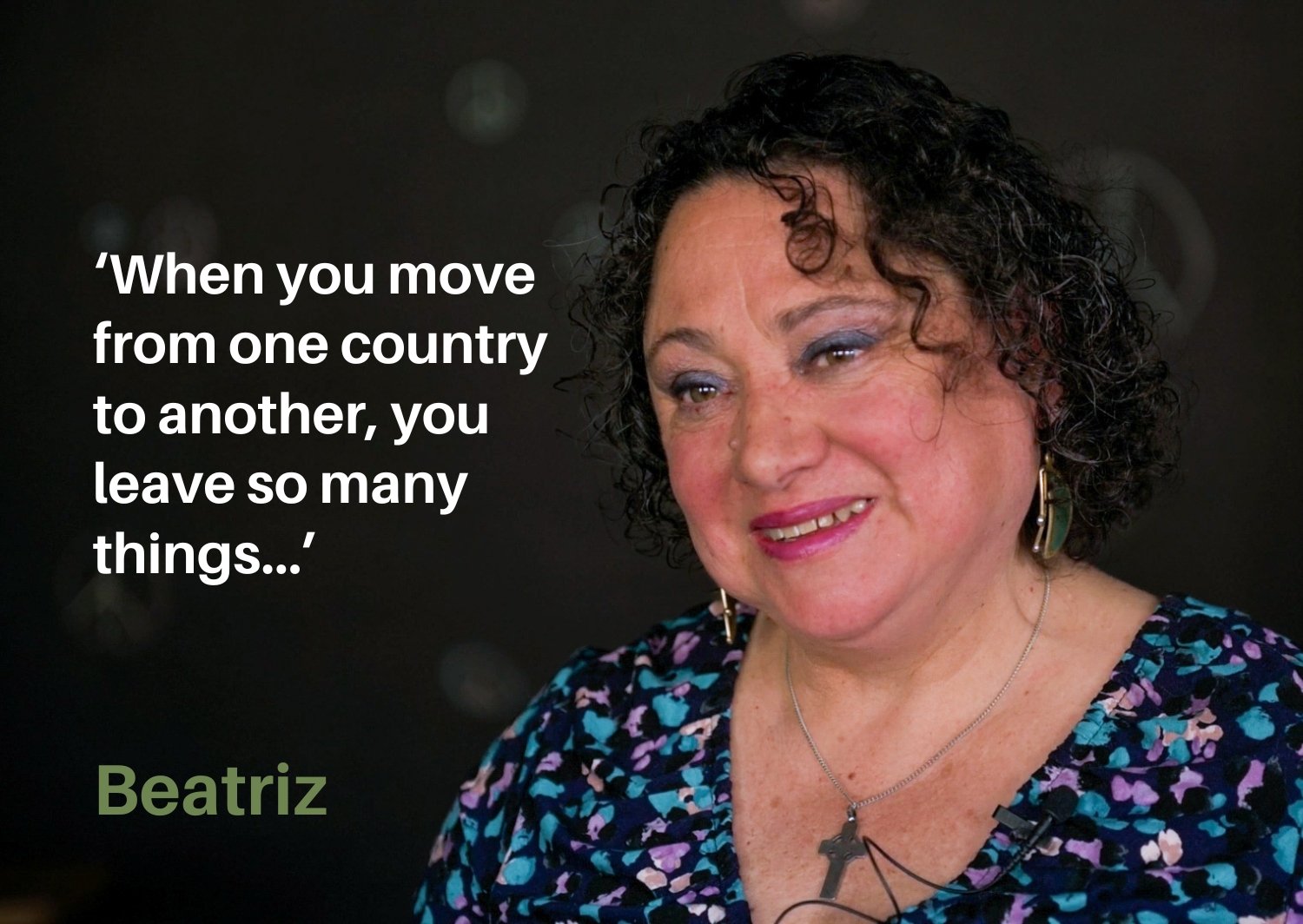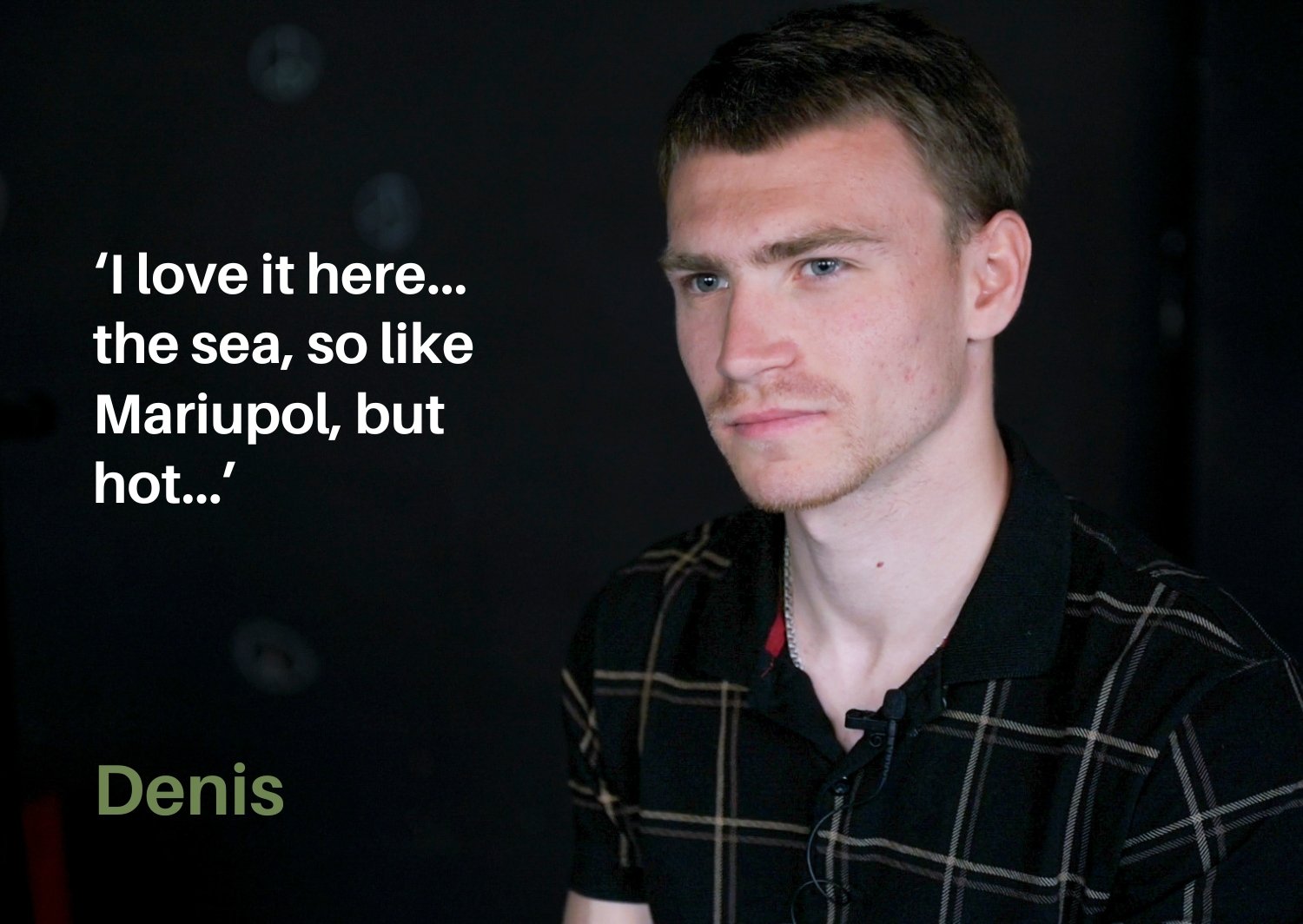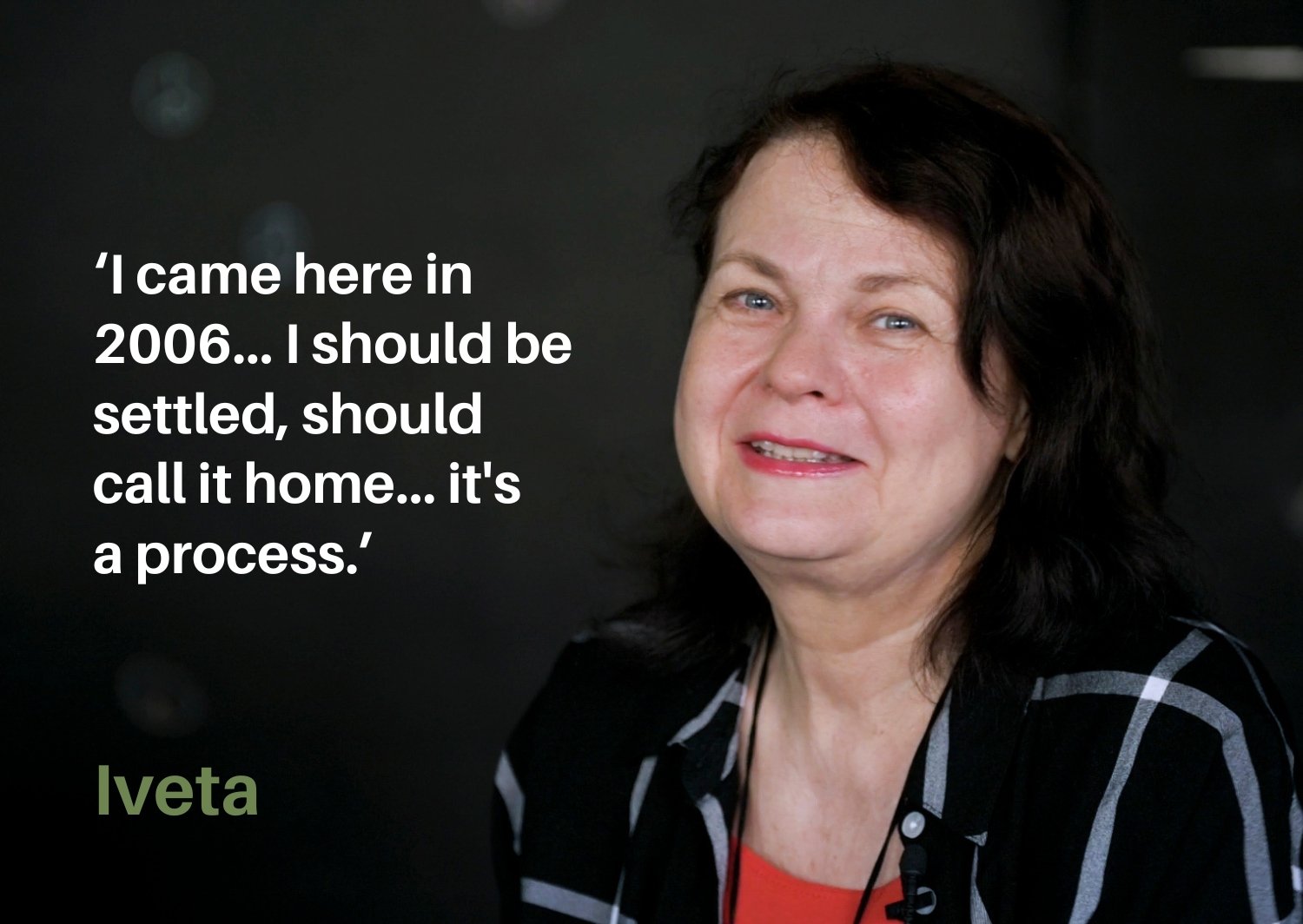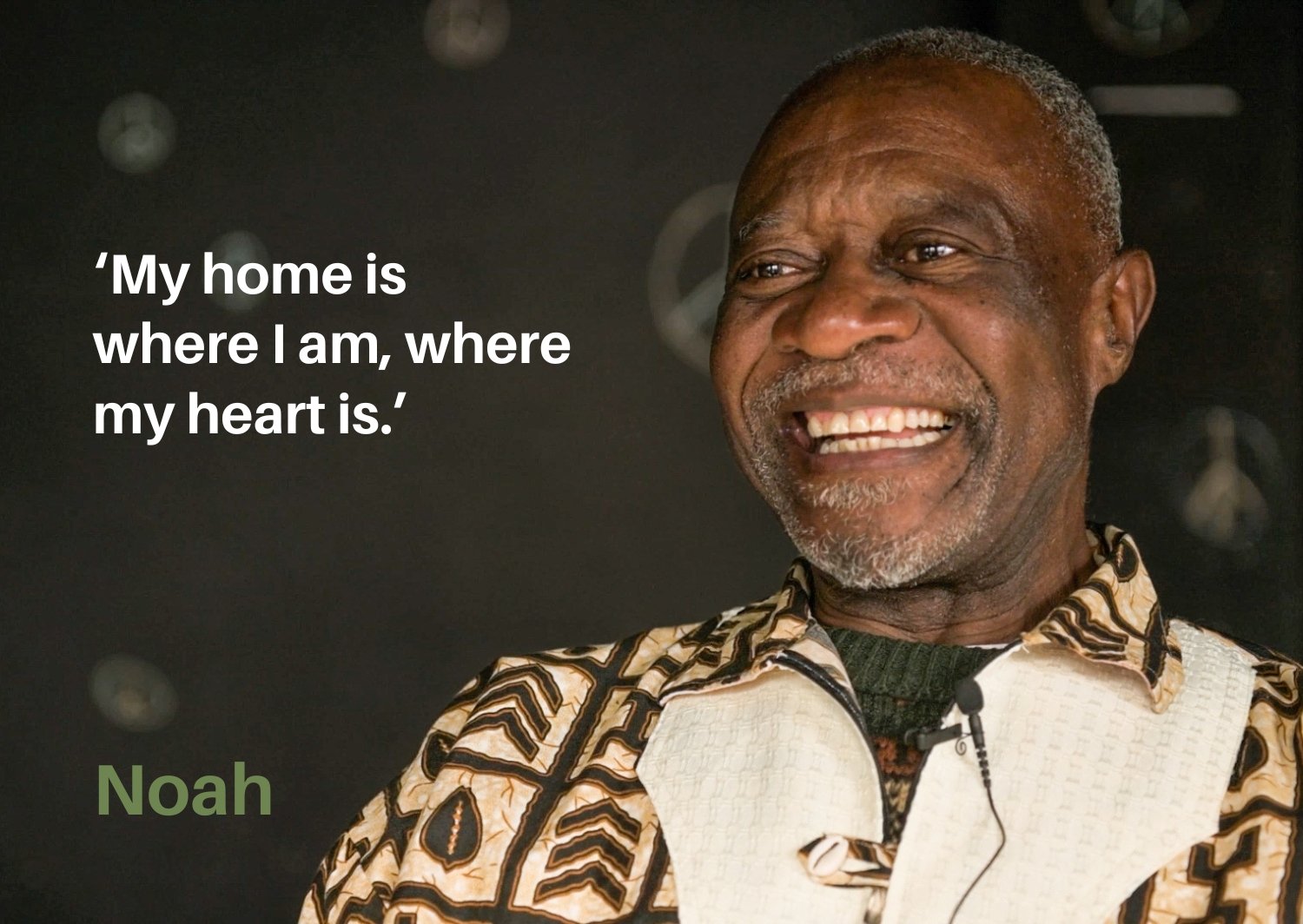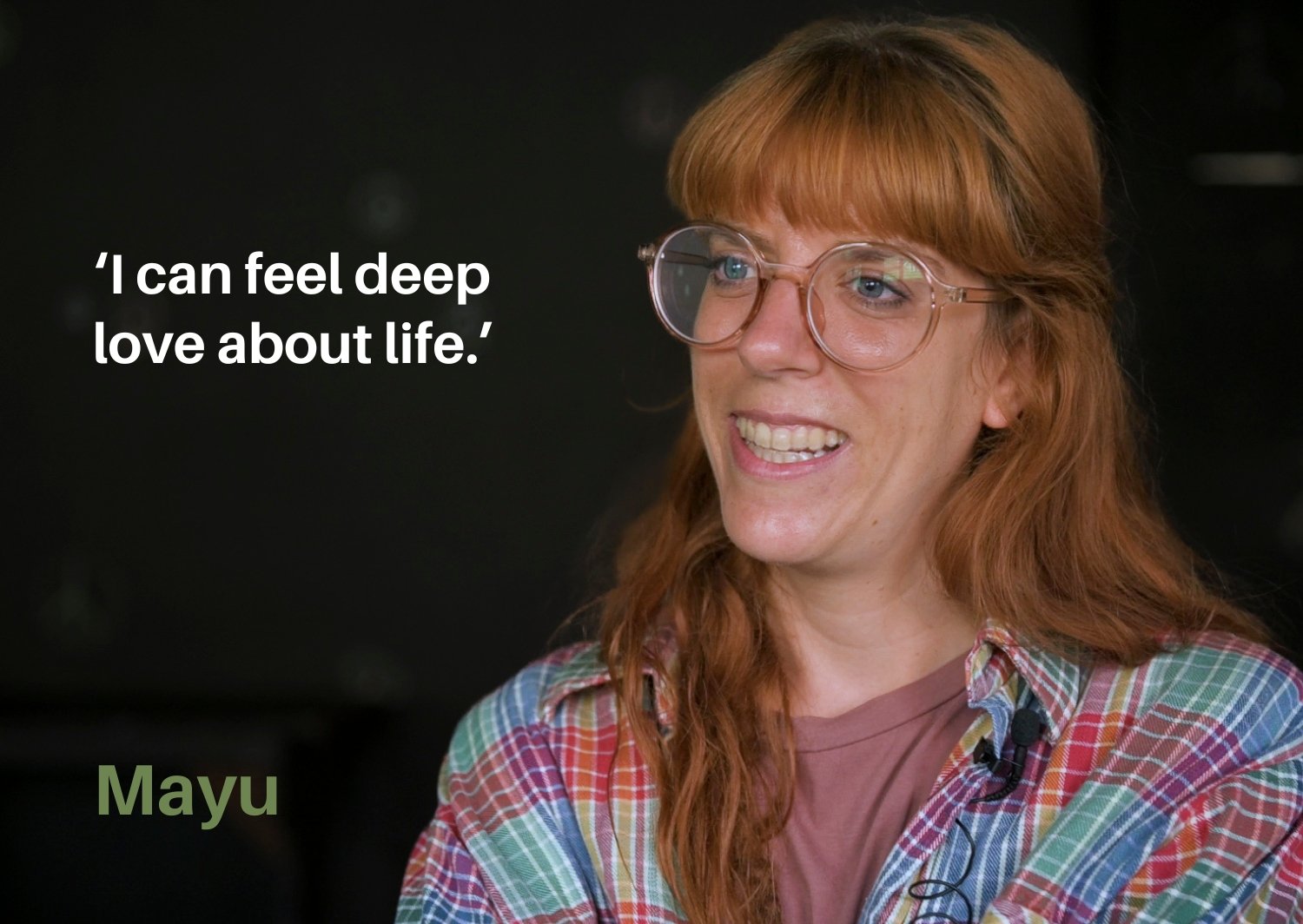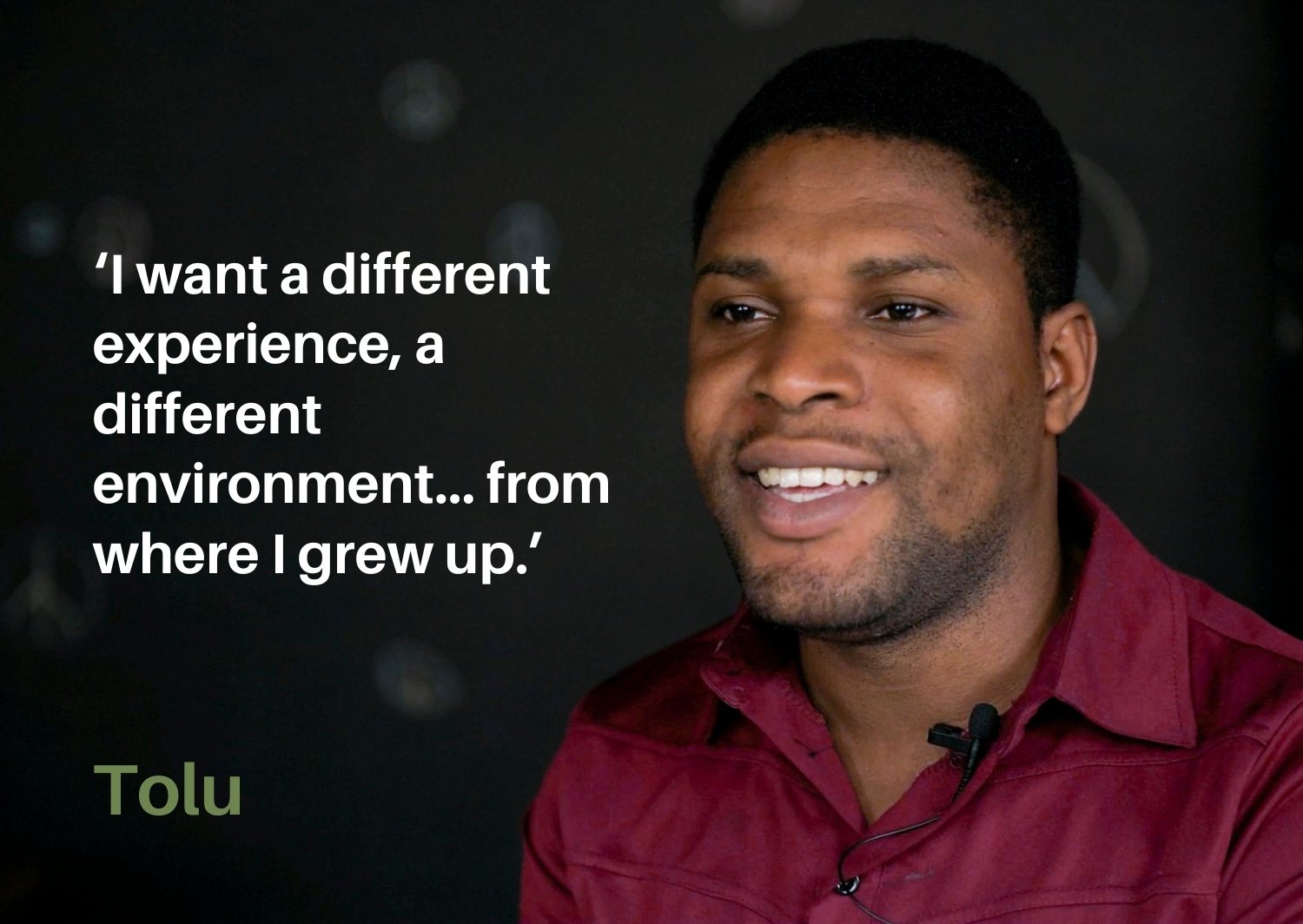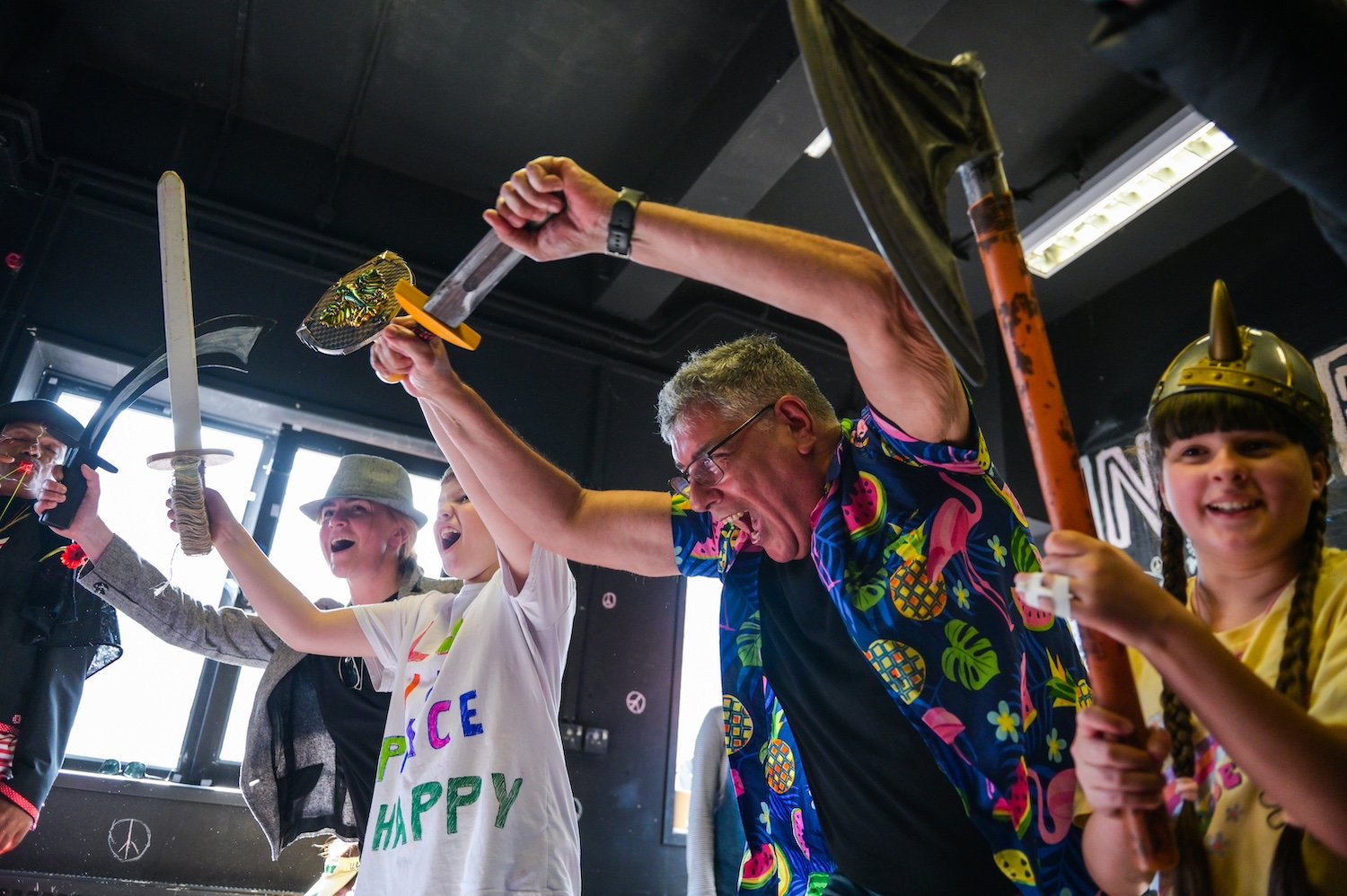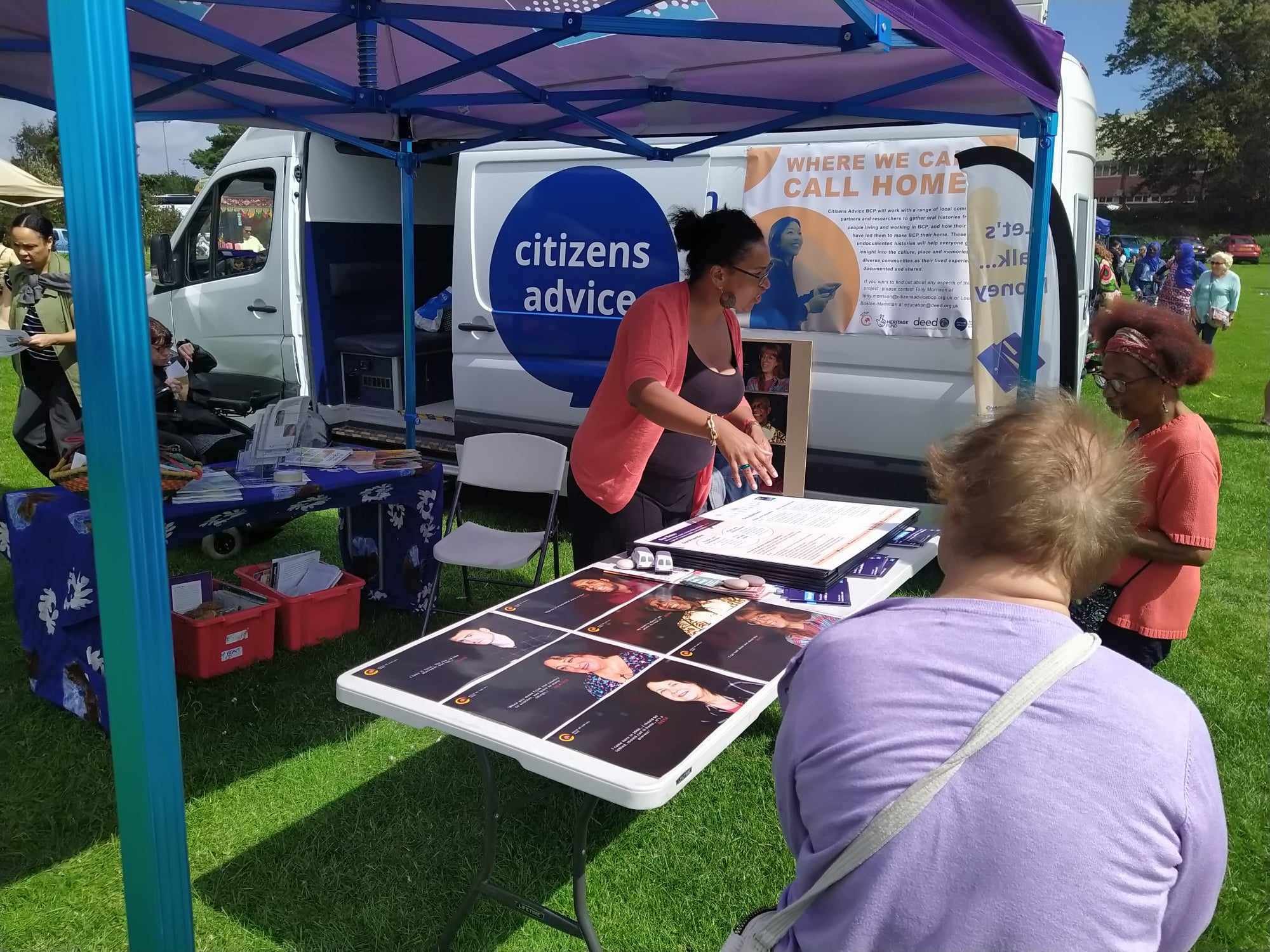
Where We Can Call Home
Where We Can Call Home is a community heritage project telling the stories of people from Bournemouth, Christchurch & Poole’s ethnically diverse communities and how their journeys from different places have led them to make BCP their home.
Our team of community researchers - Bea Sieradzka, Natalia Czarnecka, Sharon Coyne, Rita Satti and Ebi Sosseh - have recorded over 50 interviews with local people, many of whom are here working, others are here to learn, some are even here for love. There are so many reasons why people have come to BCP, but all are building their own lives, which is not always easy, and has taken resilience, ingenuity and resourcefulness.
All our community researchers received invaluable oral history and interviewing skills training from Maria Gayton at Dorset History Centre. Their interviews will be shared on a new website and become part of Dorset History Centre’s archives for future generations to study and research, each with a transcript written by Louise Worswick, our volunteer transcriber.
People’s incredible journeys, told beautifully, immerse you in their world, just for a moment. They provoke questions of us, as listeners, about how we can change our communities for the better.
Our community researchers Bea Sieradzka, Natalia Czarnecka, Sharon Muiruri Coyne, Rita Satti and Ebi Sosseh
DEED’s Louise Boston-Mammah and community researcher Rita with Maria Gayton from the Dorset History Centre
Here’s a taster of some of the people we have met and what they said
Where We Can Call Home Storytelling Festival
People have travelled from all over the world to come to BCP, others were born here. Many of those interviewed went on to share their stories through community performances and talks as part of a programme of storytelling events, helping audiences learn about their individual journeys and explore the importance of finding somewhere we belong. Here are some of the events we helped host.
HOPEFOOL BY VITA NOVA’S CELESTE
This thought-provoking, yet joyful performance about being a refugee was performed by Celeste, an integrated group of refugees, asylum-seekers, people with English as a second language and individuals in addiction recovery at Vita Nova. Some of the performers from Celeste were interviewed by our community researcher, Sharon Coyne, and filmed by local videographer Martin Coyne. Some of the performers’ filmed interviews were played after the performance which was followed by a conversation with the cast.
Sharon, who also wrote and directed the play, said: “Hopefool addresses inequality and the struggles of refugees. This drama is the beginning of a discussion, a dialogue not just about the issue of refugees, but also the significance of borders and how immigration has impacted this country.”
“Hopefool reminds us that we do have a voice and can make a difference however small in promoting unity and love.”
Hopefool at The Black Cherry Theatre in Boscombe
Black History Month conversation hosted by ‘Where We Can Call Home’ and ‘Africa Comes to Bournemouth’
This conversation with friends took place with people from our local Black and Global Majority communities to share how their life stories had led them to BCP and explore their sense of connection to both people and places here and around the world. Our community researcher, Natalia Czarnecka, helped facilitate the conversation whilst sharing her own experiences of when she first came to BCP.
Black History Month conversation at Gather, Poole Dolphin Centre
Spoken Word celebration hosted by Ras Bashy
Many interviewees and community researchers joined us for a celebration of everyone who had contributed to the project from BCP’s diverse communities at an evening of spoken word, poetry, film and music on the themes of identity, belonging and home.
“I had an amazing time hosting the first of many of these events. Big thanks to Louise Boston-Mammah, Tony A Morrison, Ebi Sosseh, Mayu Rousant and everyone that performed and supported this wonderful event.” Ras Bashy
“It’s always a privilege to share stage with you, master of words and soul!” Mayu Rousant (Rouco Santos)
“Diverse artists and people coming together from around the world and local communities to talk about ‘Where We Can Call Home’. A brilliant project! Amazing event!’ Alima Jalloh-North
“It was a very touching event.” Ebi Sosseh
Along with the challenges of belonging to a minority community, there is also joy, and this evening was also about joy.
Alima Jalloh-North, one of Ebi Sosseh’s interviewees, with Louise Boston-Mammah
Sisterhood of Stories by Dorset Ukrainian Community
Ten women from Dorset Ukrainian Community created a powerful and thought-provoking, bilingual community performance of Sisterhood of Stories, telling their stories of life in Ukraine and the impact of war. The performance was directed by Anastasia Pikalova, who was interviewed by one of our community researchers, Bea Sieradzka. The beauty of their individual stories was deeply moving.
“The performance brought me to tears more than once by the powerful narratives shared on stage with authenticity and heart.” Audience feedback
Sisterhood of Stories at the Lighthouse in Poole
World Peace Day event hosted by Unity in Vision
Rita Satti, one of our community researchers, led a talk with some of her interviewees about the importance of belonging and home, and shared some of her interviews that had been filmed by local videographer, Michael Hancock. Rita is also Chair of Unity in Vision, a community organisation bringing diverse communities in BCP together.
Where we can home talk by Unity in Vision
Zakham by Kainaat
Zakham is a provocative and compelling production by Kainaat, a BCP-based collective of Global Majority artists dedicated to supporting their decolonisation journeys. Four artists from different corners of the world share their unique migration stories.
The word ‘Zakham’ translates to ‘wound’ in Hindi, Urdu, and Farsi, symbolising the deep scars of colonial trauma and border imperialism.
Mahtab's interactive puppetry offers improvised storytelling inspired by the women's struggle in Iran. Hassan's poetry delves into the intricacies of the asylum process in the UK. Aanka's movement-based poetry reflects on the India-Pakistan partition, while Anne's playlet provides a glimpse into life in war-torn Lebanon. All artists navigate between languages, encouraging communities to broaden their perspectives on migration.
“Highly recommended and not to be missed.” Audience feedback
The cast of Zakham: Aanka; Mahtab; Hassan; and Anne (left to right)
Dr Aanka Batta, a multi-talented writer, poet, performer, and activist, was interviewed by our community researcher, Sharon Coyne, also shared a deeply personal poem on the theme of migration and home.
APNA GHAR: A HOME THAT IS OURS
I grew up in an old, humid, Delhi home
With untouchably high ceilings
And walls that parted further and further every year…
The grandparents died and the kids dispersed
Laughter no longer ricochet across those walls
Only the ghosts of all that was never heard
No longer my grandmother’s singing as she rocked me so close to her chest
For grandma, I have spent a lifetime finding the words you left unsaid
I left to forget
Young in stride and afraid of ghosts
I’ve spent everyday remembering instead
More than that house could ever hold
In that home our hearts were so big we slept with the gates open
In case the neighbours needed a drink
Or the street kids somewhere to lay their heads
For what’s a home that cannot be found. In which one cannot find themselves
I brought with me all them brown girls that didn’t say yes
And left behind all them sweets of milk, saffron, cardamom and ghee
I’m beginning to believe
That in touching that one cannot feel
In the winter that turns everything white
It is only upon losing home that one begins to go home
Perhaps for the first time
By Aanka Batta
Dr Aanka Batta
School Workshops
We are delighted to be working with Poonam Paranjpe from BPC Indian Community Association and Noah Messomo from Noah Afro Music to create a schools programme where they told their own stories and shared aspects of their Indian or African cultural heritage. We worked with 5 local schools: Stanley Green Infant School; Courthill Infant School; Upton Infants School; Heatherlands Primary School; and Mudeford Junior School.
“They were all very enthused about the session and it prompted a lot of discussion afterwards (especially concerning the food!).”
Teacher feedback
Poonam has created teaching materials and guidance to help children and young people of all ages learn about the Hindu festival of Diwali based on her lived experience and recommendations for resources.
You can download the PowerPoints below.
These resources are just a taster of what is available. To find out more about what Poonam can offer you, contact Louise Boston-Mammah at education@deed.org.uk
Poonam Paranjpe in Heatherlands Primary School in Poole
Noah Messomo in Stanley Green Infants School in Poole
‘Where We Can Call Home’ on Tour
As the project has developed, it has grown from being about capturing people’s lived experiences, to supporting people to tell their own story, in their own way, to the wider community to increase their knowledge, empathy and understanding of local diversity, and its impact and importance in creating new communities. Both the storytelling festival and schools workshops have done this reaching hundreds of people across BCP
We have also attended many community events over the past two years, sharing the stories we’ve been told with travelling displays, talks and short films based on the interviews, such as, ‘I came by boat,’ reaching thousands of people across BCP.
This has included:
World of Love festival in Kings Park, Bournemouth
Africa Comes to Bournemouth festival in Bournemouth town centre
Black History Month at Poole Dolphin Centre
Spoken Word celebration at The Black Cherry Theatre in Boscombe
BCP Council Black History Month events at Bournemouth University
Refugee and role model workshops in Mudeford Junior School in Christchurch
Sisterhood of Stories at Poole Lighthouse
Hopefool at The Black Cherry Theatre in Boscombe
Summer Arts exhibition at BEAF in Boscombe
World Peace Day event at the Church of Latter-Day Saints in Christchurch
Africa Comes to Bournemouth
BCP Black History Month event at Bournemouth University
‘Talking Tings’ with Ebi Sosseh
‘Talking Tings’ is a fantastic podcast series created and hosted by Ebi Sosseh, one of our community researchers. Ebi invited Beckee, Toni and Tony to have a series of conversations exploring local African, Caribbean and British perspectives on food, family life and British culture.
Listen here
Ebi Sosseh
Our thanks to the National Lottery Heritage Fund for supporting this work and to Citizens Advice BCP, our incredible partner delivering this project.
Our special thanks to all our community researchers, interviewees, performers, and volunteers who have been so generous with their time and open with their thoughts.
To find out more about the work contact Louise Boston-Mammah at education@deed.org.uk or Tony Morrison at tony.morrison@citizensadvicebcp.org.uk
Black History Month 2023: Celebrating our Sisters
Bournemouth Christchurch, and Poole (BCP) Council’s Race and Cultural Diversity Staff Network group hosted their second annual Black History Month event in Bournemouth University’s Bournemouth Gateway Building. The event highlighted the crucial role that Black women have played in shaping history, inspiring change, and building communities.
Key speakers included Bernadette MacDonald, Chair of the Equality Council Commission; Toni Jones, Senior Practitioner, Adult Social Care; Dr. Isioma Nwokolo, Consultant Psychiatrist; and DEED’s Louise Boston-Mammah.
This community event gathered people of all ages and backgrounds. Audience members included the Charter Mayor of Poole, Councillor Jo Clements and Bournemouth, Councillor Anne Filer.
Layne Hamerston, BU’s Community Partnerships Manager, said: “We’re delighted to continue to work together and utilise our facilities to bring together communities. This event has helped raise awareness for the ongoing work within Dorset to support our diverse community and highlight its successes. We look forward to being a part of the future evolution of this event.”
BCP’s Community and Recreation Officer, Wilbert Smith, organiser of the event, introduced the keynote speakers. Bernadette MacDonald spoke of her work supporting those from disadvantaged and ethnic minority communities as a volunteer community member for The Crown Prosecution Service and local police.
Toni Jones spoke of women who have made a difference including activists such as Olive Morris, a member of the British Black Panther Movement who supported the UK’s first network of Black women’s groups. Toni also spoke about Claudia Jones's influence as a journalist, through her advocacy for Black individuals, women, and workers.
Louise Boston-Mammah introduced her research project, ‘Where We Can Call Home’, Citizens Advice Bournemouth Christchurch and Poole in partnership with DEED are working with the new communities of BCP to tell the stories of people who are re-shaping their local communities, industries and services.
Dr. Isioma Nwokolo concluded the event, with an interactive presentation in which the audience was invited to share their experience going into “survival mode” e.g., a difficult period. An audience member gave an example of how their community group had struggled during COVID-19 to stay connected and took to activities via video call such as cooking to help maintain a sense of community during a period of isolation. From other’s experiences, we learnt that there is strength and support in coming together as a community.
-
1. Oliver Morris
2. Claudia Jones
3. Diane Abbot
4. Mary Seacole
5. Professor Dame Elizabeth Nneka Anionwu
6. Olivette Otele
7. Margaret Busby
8. Malorie Blackman
9. Vanessa Kingori
10. Maggie Aderin-Pocock
11. Tessa Sanderson
12. Carmen Munroe
13. Katherine Johnson
14. Mary W. Jackson
15. Dorothy Vaughan
16. Jessica Watkins
17. Kamala Harris
18. Shonda Rhimes
19. Serena Williams
20. Simone Biles
21. Salma Celeste Paralluelo Ayingono
Speakers alongside BCP’s Community and Recreation Officer, Wilbert Smith, and BU’s Community Partnerships Manager, Layne Hamerston
DEED’s Louise Boston-Mammah talking about the ‘Where We Can Call Home’ project at the ‘Celebrating our Sisters’ event in Bournemouth.





